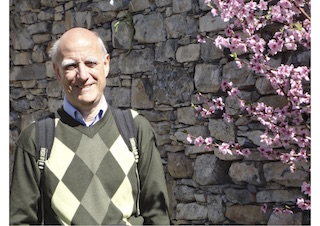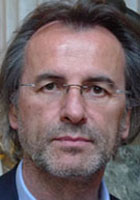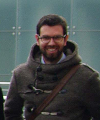Studying at the University of Verona
Here you can find information on the organisational aspects of the Programme, lecture timetables, learning activities and useful contact details for your time at the University, from enrolment to graduation.
Academic calendar
The academic calendar shows the deadlines and scheduled events that are relevant to students, teaching and technical-administrative staff of the University. Public holidays and University closures are also indicated. The academic year normally begins on 1 October each year and ends on 30 September of the following year.
Course calendar
The Academic Calendar sets out the degree programme lecture and exam timetables, as well as the relevant university closure dates..
| Period | From | To |
|---|---|---|
| Sem. IA (31.10.16 sosp.lezioni) | Oct 3, 2016 | Nov 12, 2016 |
| Sem. IB | Nov 14, 2016 | Jan 21, 2017 |
| Sem. IIA | Feb 27, 2017 | Apr 22, 2017 |
| Sem. IIB | Apr 24, 2017 | Jun 10, 2017 |
| Session | From | To |
|---|---|---|
| Sessione Estiva | Jun 12, 2017 | Jul 29, 2017 |
| Sessione Autunnale | Aug 21, 2017 | Sep 23, 2017 |
| Sessione Straordinaria | Jan 22, 2018 | Feb 24, 2018 |
| Session | From | To |
|---|---|---|
| Sessione Estiva | Jul 10, 2017 | Jul 15, 2017 |
| Sessione Autunnale | Dec 18, 2017 | Dec 21, 2017 |
| Sessione Invernale | Mar 23, 2018 | Mar 29, 2018 |
| Period | From | To |
|---|---|---|
| Festa di Ognissanti | Nov 1, 2016 | Nov 1, 2016 |
| Festa dell'Immacolata | Dec 8, 2016 | Dec 8, 2016 |
| Vacanze di Natale | Dec 23, 2016 | Jan 6, 2017 |
| Vacanze Pasquali | Apr 14, 2017 | Apr 18, 2017 |
| Festa della Liberazione | Apr 25, 2017 | Apr 25, 2017 |
| Festa dei Lavoratori | May 1, 2017 | May 1, 2017 |
| Festa del Santo Patrono - San Zeno | May 21, 2017 | May 21, 2017 |
| Festa della Repubblica | Jun 2, 2017 | Jun 2, 2017 |
| Vacanze Estive | Aug 14, 2017 | Aug 19, 2017 |
Exam calendar
Exam dates and rounds are managed by the relevant Humanistic Studies Teaching and Student Services Unit.
To view all the exam sessions available, please use the Exam dashboard on ESSE3.
If you forgot your login details or have problems logging in, please contact the relevant IT HelpDesk, or check the login details recovery web page.
Should you have any doubts or questions, please check the Enrollment FAQs
Academic staff
 alex.arcozzi@univr.it
alex.arcozzi@univr.it

Avezzu' Guido
 guido.avezzu@univr.it
guido.avezzu@univr.it
 augusto.barbi@univr.it
augusto.barbi@univr.it
 alberto.cavarzere@univr.it
alberto.cavarzere@univr.it

Chiecchi Giuseppe
 giuseppe.chiecchi@univr.it
giuseppe.chiecchi@univr.it
 +39 045802 8117
+39 045802 8117

Mastrocinque Attilio
 attilio.mastrocinque@univr.it
attilio.mastrocinque@univr.it
 +39 045802 8386
+39 045802 8386
 linda.napolitano@univr.it
linda.napolitano@univr.it
 carlotta.salettisalza@univr.it
carlotta.salettisalza@univr.it
 giorgia.totola@univr.it
giorgia.totola@univr.it
 ivan.valbusa@univr.it
ivan.valbusa@univr.it
 gianmaria.varanini@univr.it
gianmaria.varanini@univr.it
Study Plan
The Study Plan includes all modules, teaching and learning activities that each student will need to undertake during their time at the University.
Please select your Study Plan based on your enrollment year.
1° Year
| Modules | Credits | TAF | SSD |
|---|
One course to be chosen among the following2° Year activated in the A.Y. 2017/2018
| Modules | Credits | TAF | SSD |
|---|
One course to be chosen among the following
One course to be chosen among the following
One/two courses to be chosen among the followingOne course to be chosen among the following3° Year activated in the A.Y. 2018/2019
| Modules | Credits | TAF | SSD |
|---|
Two/four courses to be chosen among the followingOne/two courses to be chosen among the following| Modules | Credits | TAF | SSD |
|---|
One course to be chosen among the following| Modules | Credits | TAF | SSD |
|---|
One course to be chosen among the following
One course to be chosen among the following
One/two courses to be chosen among the followingOne course to be chosen among the following| Modules | Credits | TAF | SSD |
|---|
Two/four courses to be chosen among the followingOne/two courses to be chosen among the following| Modules | Credits | TAF | SSD |
|---|
Legend | Type of training activity (TTA)
TAF (Type of Educational Activity) All courses and activities are classified into different types of educational activities, indicated by a letter.
Theoretical Philosophy A (i) (2016/2017)
The teaching is organized as follows:
Learning outcomes
------------------------
MM: II MODULO PARTE (II)
------------------------
The course intends to introduce to a classic of Modern Philosophy with the aim of highlighting the theoretical issues which concern both the philosophy of knowledge and the metaphysics. The purpose of the course is not only to provide students with conceptual grounds and critical methodology, but also to develop their hermeneutical abilities in order to make them able to understand the text, its fundamental assumptions, and its problematical implications, so that they could note both its logical structure and the potential contradictions. Together with conceptual clarity, the course pays special attention to the acquisition of the terminological precision, which is necessary to fully express the critical and speculative abilities.
------------------------
MM: I MODULO PARTE (I)
------------------------
The course intends to introduce to a classic of Modern Philosophy with the aim of highlighting the theoretical issues which concern both the philosophy of knowledge and the metaphysics. The purpose of the course is not only to provide students with conceptual grounds and critical methodology, but also to develop their hermeneutical abilities in order to make them able to understand the text, its fundamental assumptions, and its problematical implications, so that they could note both its logical structure and the potential contradictions. Together with conceptual clarity, the course pays special attention to the acquisition of the terminological precision, which is necessary to fully express the critical and speculative abilities.
Program
------------------------
MM: II MODULO PARTE (II)
------------------------
Prerequisite: in order to attend the Theoretical Philosophy A (i) course, we recommend the attendance of the History of Philosophy A (i) (12) course, which will be held in the first semester. Course content: The issue of knowledge: from the sense data to the intellectual elaboration. What is the value of our knowledge? What do we know about the world outside us? And about ourselves? How does sensation differ from the work of the intellectual cognitive functions? These are the issues which we will deal with in the second part of the Theoretical Philosophy course. Reference Texts: 1) G. Zamboni, Corso di gnoseologia pura elementare, parte prima, tomo primo: Spazio, tempo, percezione intellettiva, introd. e cura di F.L. Marcolungo, IPL, Milano 1990. The detailed program will be specified in the e-learning section of the University of Verona website. 2) F.Marcolungo, La realtà e l'io in Giuseppe Zamboni, QuiEdit, Verona 2016. Any indication will be provided to the students during the course and will be online available on the e-learning section of the univr website, where we will also indicate further texts and teaching materials. Teaching methods: frontal lessons and seminars.
------------------------
MM: I MODULO PARTE (I)
------------------------
“The issue of the knowledge of the outside world and its reality between critico-experimental philosophy, solipsism and empiricism. The philosophies of John Locke, George Berkeley and David Hume”. In the context of the theoretical reflection of the seventeenth and eighteenth centuries, we will focus on the issue of knowledge of the “outside world”, the psychic contents on which it is based and the relationship between mind and world as Locke, Berkeley and Hume proposed, in order to find both the epistemological grounds and the problematic aspects of their views. Reference texts The texts required are a selection of texts taken from: 1. John Locke’s Essay concerning Human Understanding; 2. George Berkeley’s Essay Towards a New Theory of Vision; 3. Id., Treatise Concerning the Principles of Human Knowledge; 4. David Hume’s Treatise of Human Nature. All the anthological materials will be uploaded (in full compliance with copyright laws) on the e-learning platform of the University website. The reference texts are the same for both attending students and not attending ones. Additional texts and teaching materials will also be communicated on the e-learning platform of the University website.
Bibliography
| Author | Title | Publishing house | Year | ISBN | Notes |
|---|---|---|---|---|---|
| G. Zamboni | Corso di gnoseologia pura elementare, parte prima, tomo primo: Spazio, tempo, percezione intellettiva, introd. e cura di F.L. Marcolungo. | IPL, Milano | 1990 | ||
| F.L. Marcolungo | La realtà e l'io in Giuseppe Zamboni | QuiEdit, Verona | 2016 | ||
| George Berkeley | Opere filosofiche | UTET | 2007 | 978-88-02-07790-1 | |
| John Locke | Saggio sull'intelletto umano (Edizione 1) | Bompiani | 2004 | 88-452-1210-6 | |
| David Hume | Trattato sulla natura umana (Edizione 2) | Bompiani | 2005 | 88-452-9133-2 |
Examination Methods
------------------------
MM: II MODULO PARTE (II)
------------------------
Didactic Methods The teaching methods consist of traditional lectures axed on the reading and the comment on texts, with the aim of transmitting: 1) the key concepts of theoretical philosophy in general (with regard to the philosophy of knowledge and the metaphysics); 2) the key concepts of the thought of Giuseppe Zamboni; 3) the critical means that are useful for understanding (and for dealing with) the problematic issues involved in both the knowledge of the so-called “external world” and the “realism” (both in the gnoseological sense and in the metaphysical one). Each lesson will be recorded in mp3 format and, together with all the material analysed during the course, will be punctually loaded on the e-learning platform of the University with the aim of easing the study for both attending students and those who can not attend lectures. During the academic year, an individual consultation service is also available at the teacher's study, at the times indicated on the web pages and readily updated. Examination arrangements: The assessment of the learning outcomes of both the key concepts and the issues examined during the lessons will be done by means of an oral examination concerning the programme carried out during the course. This examination consists of questions to test the critical and argumentative abilities of the students, the textual exegesis, the conceptual clarity, and the acquisition of an adequate philosophical vocabulary. The grades are expressed in thirtieths. The examination is the same for both attending students and non-attending ones.
------------------------
MM: I MODULO PARTE (I)
------------------------
Didactic Methods The teaching methods consist of traditional lectures axed on the reading and the comment on Locke’s Essay concerning Human Understanding, Berkeley’s Essay Towards a New Theory of Vision and Treatise Concerning the Principles of Human Knowledge and, finally, Hume’s Treatise of Human Nature, with the aim of transmitting: 1) the key concepts of theoretical philosophy in general (with regard to the philosophy of knowledge and the metaphysics); 2) the key concepts of the thought of the three philosophers; 3) the critical means that are useful for understanding (and for dealing with) the problematic issues involved in both the knowledge of the so-called “external world” and the “realism” (both in the gnoseological sense and in the metaphysical one). Each lesson will be recorded in mp3 format and, together with all the material analysed during the course, will be punctually loaded on the e-learning platform of the University with the aim of easing the study for both attending students and those who can not attend lectures. During the academic year, an individual consultation service is also available at the teacher's study, at the times indicated on the web pages and readily updated. At the first lesson, students will receive the full calendar of teaching activities, together with the dates and classroom in which the lessons will take place and a synoptic presentation of the subject of the course. Any suspension of lectures for academic reasons will be readily communicated in the classroom, on the web site, and on the e-learning platform forum. Examination arrangements The assessment of the learning outcomes of both the key concepts and the issues examined during the lessons will be done by means of an oral examination concerning the programme carried out during the course. This examination consists of questions to test the critical and argumentative abilities of the students, the textual exegesis, the conceptual clarity, and the acquisition of an adequate philosophical vocabulary. The grades are expressed in thirtieths. The examination is the same for both attending students and non-attending ones.
Type D and Type F activities
Modules not yet included
Career prospects
Module/Programme news
News for students
There you will find information, resources and services useful during your time at the University (Student’s exam record, your study plan on ESSE3, Distance Learning courses, university email account, office forms, administrative procedures, etc.). You can log into MyUnivr with your GIA login details: only in this way will you be able to receive notification of all the notices from your teachers and your secretariat via email and also via the Univr app.
Student mentoring
Linguistic training CLA
Gestione carriere
Practical information for students
Documents
| Title | Info File |
|---|---|
|
|
pdf, it, 325 KB, 16/07/24 |
|
|
pdf, it, 212 KB, 02/05/23 |
|
|
pdf, it, 131 KB, 02/05/23 |
Graduation
Documents
| Title | Info File |
|---|---|
|
|
pdf, it, 109 KB, 12/07/24 |
|
|
pdf, it, 112 KB, 14/05/24 |































